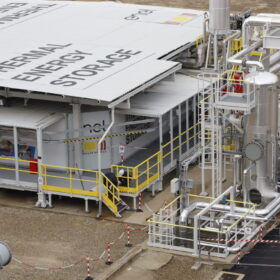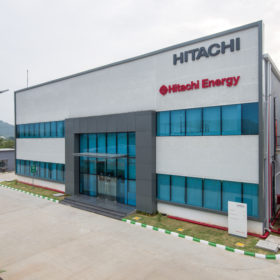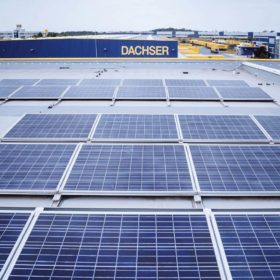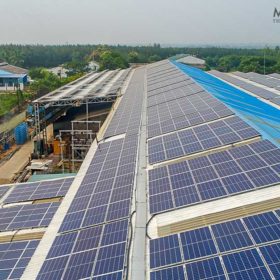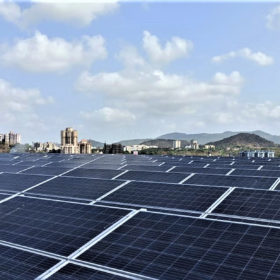Rock-based thermal energy storage production moves into gigawatt scale
Israeli company Brenmiller is set to launch a 4 GW to 5 GW production line for its thermal energy storage systems, which use crushed rocks to retain heat that can be released as steam, hot water, or hot air.
Hitachi Energy opens advanced power system factory in Chennai
The HVDC and power quality product factory will cater to the rising number of high-voltage transmission projects in India and export to support global HVDC installations.
From diesel to DC
For a long while, it looked as if hydrogen fuel cells would be the technology of choice for emissions-free road transport. However, truck manufacturers and freight forwarders recently turned their attention to battery-electric vehicles. This will require special charging technology and PV looks set to play an important role.
Union Budget 2023: Mainstreaming flexible and resilient grids
While the current policy regime supports the adoption of flexible resources like batteries, grid flexibility and resilience require more focus and a range of calibrated efforts, including due acknowledgment as a sector priority and robust planning at the central and state level. The upcoming union budget provides an opportunity for the government to develop flexible and resilient grids.
Hitachi Energy to supply power transformers for India’s largest solar energy park
Hitachi Energy will provide made-in-India power transformers for NTPC’s upcoming 4.75 GW solar energy park in Gujarat.
Challenges to utility-scale solar in India
The growth of utility-scale solar PV in India is marred by several challenges such as availability of land, limited local manufacturing capacity, high transmission and distribution losses, grid integration, and other inefficiencies.
India’s power market design must evolve as renewables’ share rises, says IEEFA
A new report by IEEFA says India’s power market design must evolve to transition faster to an ultra-low-cost renewable energy-based electricity system.
Delhi discom deploys digital data platform for solar energy management
BSES Yamuna Power Limited has deployed a digital solution pilot project that predicts the energy demand at consumption points like electric vehicle charging stations and energy generation capacity at solar rooftops. This will help the utility plan to store excess energy by considering the distribution congestion and commercial aspects.
Blockchain technology in renewable energy
The present system of the energy sector is centralized due to which the prosumer’s and consumers’ direct connection is yet to be formed. It’s due to persisting challenges like transaction efficiency, security and data transparency in the Indian energy market. The blockchain is a data-driven technology that helps create a very transparent process in data sharing among the peers involved in the system and sort out the challenges persisting in the energy market.
Forget batteries, what if surplus renewable energy could be stored as information?
A pair of researchers from UC San Diego has proposed to precompute certain data when the grid is flooded with solar or wind power, and then store it on servers for later use.
